QC filmmaker focuses on crime, thrillers
As Illinois and the Quad Cities area works to boost filmmaking production, Stephen Folker of Davenport has been quietly building an impressive number of film and TV projects.
His work can be seen on A&E, Hulu and Tubi TV, and he’s working on two new drama films in Davenport, with local and Chicago-based talent. The writer / co-producers are based out of Los Angeles and Indiana, and in May, Folker has another feature he’s been hired to direct and film.
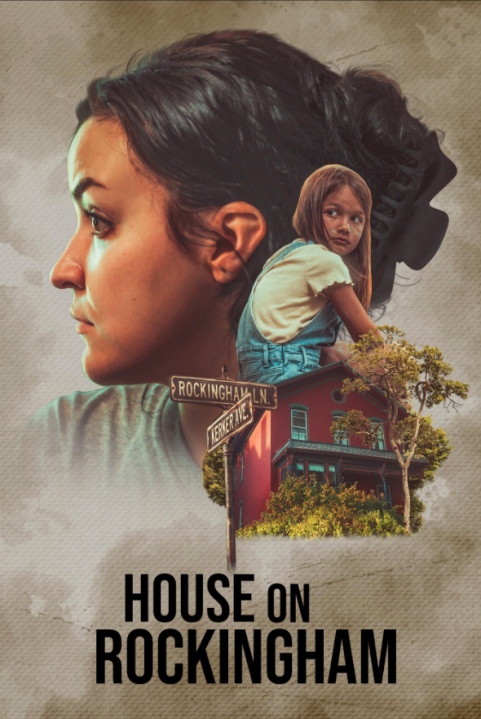
His latest feature (which he wrote and directed) is the completed “House on Rockingham,” a psychological thriller made for $2,500, shot in Davenport. “Just me directing and running a camera with an audio bag slung around my neck. I love making movies for the craft,” Folker said recently.
In the story, after securing a job as live-in housekeeper, a woman discovers the owner may be connected to her sister’s disappearance. The film features actors Dave Juehring, Stephanie Goff, Kate Almquist and Thomas Ely Sage.
The lead actress in the film flew in from Utah and “did a stellar job,” Folker said, noting the film is playing at the Maryland International Film Festival along with PopCon Film Festival.
He’s still waiting to hear about some other submissions and future distribution.
Sarah F. Katz, who’s based in Los Angeles, is one of his producing partners.
“Stephen and I have collaborated on producing projects in a wide range of genres, to include tech drama, cultural drama, historical drama, science fiction, and thriller/horror. In so doing, we have leveraged the beautiful Iowa countryside to tell a vast array of stories surrounding equal rights, poverty, and intercultural understanding — thanks also to strong local talent and unique locations,” Katz said by email.
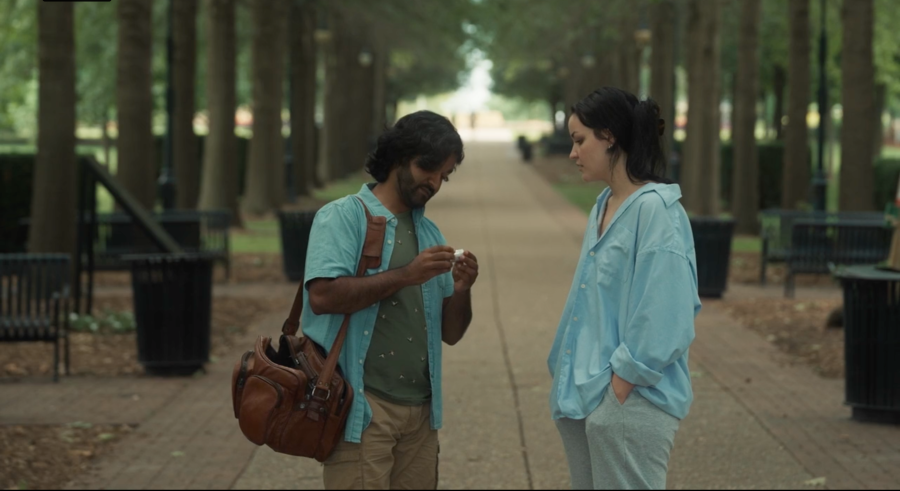
“Stephen’s directing and cinematography skills have brought these stories to life in films that have gone on to receive the honors of placements,” she said.
Folker and Katz initially collaborated on a short film “At The End of the Canyon” (2022) then a feature “Into the Valley” (2023), which she wrote and he directed then a mini-feature “Spiderweb” (2023). Now they’re partnering on another feature this May, which is a horror / thriller.

His films have been shown and placed in the following festivals:
BAFTA and Oscar-qualifying Rhode Island International Film Festival (semi-finalist)
Other Worlds Film Festival (finalist)
International Sci-Fi & Fantasy Film Festival, L.A. Sci-Fi & Horror Film Festival (semi-finalist)
Indie Suspense Horror Sci-Fi Film Festival, Hollywood Just4Shorts Film & Screenplay Competition (winner)
First Contact Film Festival, IndieFEST Film Awards (finalist)
Alternating Currents Film Festival, Snake Alley Film Festival, Cedar Rapids Film Festival, and American Screenwriters’ Conference.
Folker has been making independent films since 2010 (his first short film was the zany comedy, “The Mustache Movie”), and his passion for making films “dated back to being the kid in the neighborhood running around with my dad’s camcorder,” he said.
After completing his first feature film (“To Survive”), he sold it to an emerging production company based out of Los Angeles. From there, Folker financed his next, “’Field Freak,” which he called “an over-the-top, campy flick poking fun at cheesy horror films.”
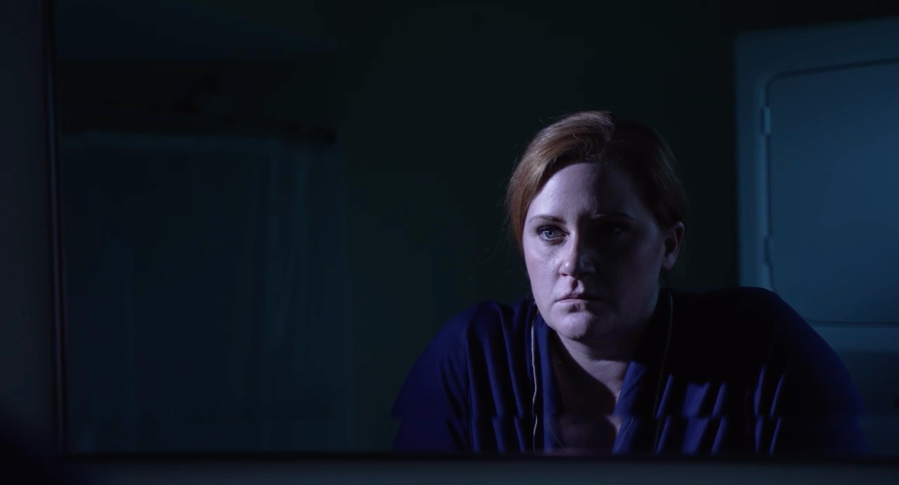
It came out in several countries (including being dubbed in German), which was fun to watch, Folker said. “I’ll never forget my lead actor finding a copy of the film at Family Video on the shelf,” he said.
After “The Orange Man” (2014), another over-the-top flick with a horror-comedy theme, he has shifted to more meaningful, serious projects. Being self-taught, each film was Folker’s “film school,” and most of his actors are “locals with a dream, like me,” he said. “We’re growing together.”
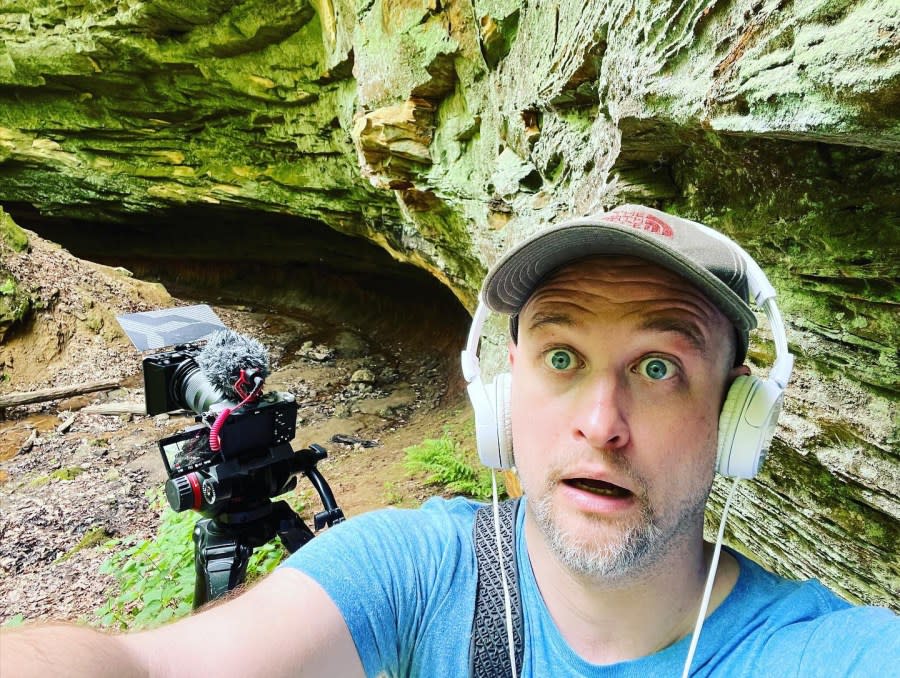
After the pandemic hit, he received an email from a producer based in New York. They were looking for someone to film an interview, in Cedar Rapids, for a crime show.
“At first, I thought the email looked fishy and I deleted it. Then I decided, maybe this is something to look into,” Folker said.
It turned out to be a new crime show entitled “Killer Cases.”
His first day setting up the interview, Folker was told to show up two hours early to get lights ready / cameras ready. But he had everything ready to go in 20 minutes. The show’s creator and executive producer were impressed with his filming style and cinematography, and he was hired to film the entire episode, solo.
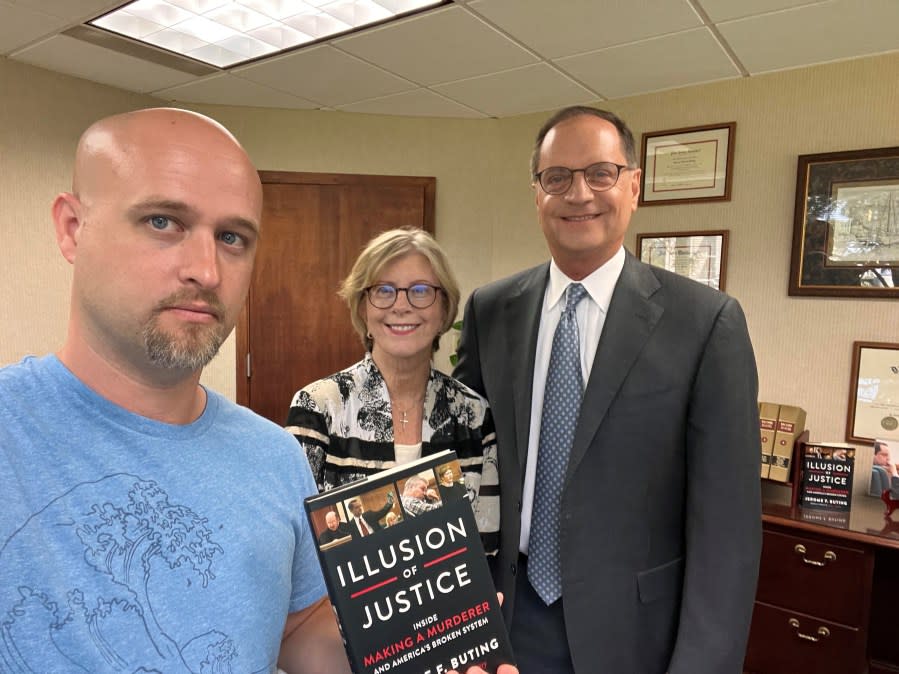
“Which worked well due to the pandemic,” Folker said, noting he went on to film six more episodes. This show ended up airing on A&E and is available on Hulu. One of the episodes he filmed was about Mollie Tibbetts, and was the most watched program on cable that week — in December 2021: “The Murder of Mollie Tibbetts.”
When 20-year-old University of Iowa student Tibbetts went missing during her regular evening jog July 18, 2018, her disappearance was headline news. Police had few clues until a local resident shared his garage surveillance camera, which had captured a brief glimpse of Mollie running down the street and later a black car driving by.

Following the lead, police moved quickly to arrest undocumented immigrant Cristhian Bahena Rivera who worked at a nearby dairy farm and charged him with murder, according to the episode summary. Under intense questioning, Rivera appeared to confess, although his story had strange gaps.
But when it came time for trial, he pled not guilty, and his lawyers mounted a vigorous defense–accusing police of badgering him into a confession, casting suspicion on Mollie’s boyfriend and presenting alternate theories of the crime.
Another crime documentary
Another film Folker is very proud of is a local true crime documentary called “Tragedy on Highway 74” (2022), currently available on Tubi.
The premise of the film is the tragic story of Iowa vigilante Robert Sproat and his demise in August 1930. In a time when local business owners helped law enforcement, a few poor decisions left a man lying in a ditch, and another at the end of a rope.
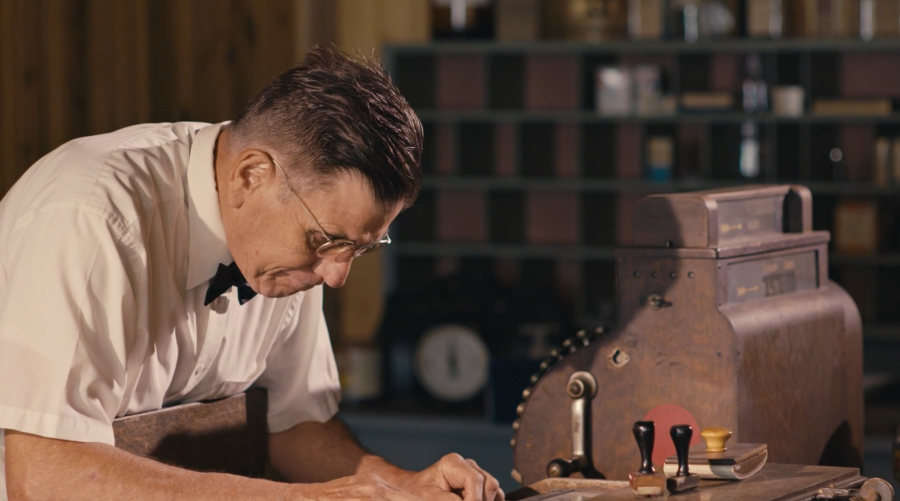
The film features historical reenactments and Folker said there are many cool stories about the filming of that project.
“I won’t spoil the story, but the killer in the film, because of the time period, we couldn’t find any photos of him,” he recalled. “Then by sheer coincidence, the Cedar County Historical Society found an old, unlabeled VHS tape. Stuff is left to museums all the time when people pass away, so it’s just a random tape for all they know.
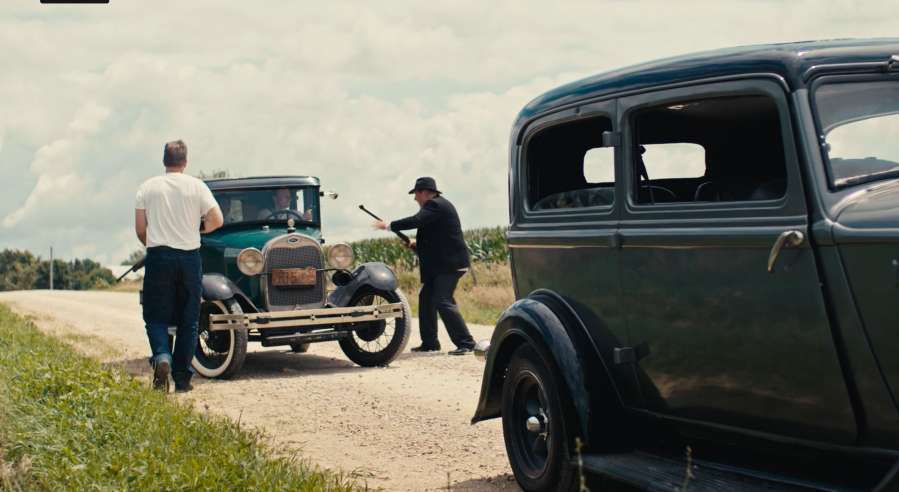
“Watching the tape, they realized it was someone’s homemade films from the 1930s, which were digitized to VHS. Eighteen minutes into the video, there is a shot of the courthouse in Cedar County (where the murder happened) with the killer being led in and out of the courthouse.,” Folker said. “What a gem of a find! Naturally, it made its way into the film.”
Looking for bigger projects
Far too often, the filmmaker said some of the most talented people are overlooked on a regular basis. “If someone won’t give them the opportunity, then I will,” Folker said. “Of course, deep down I’m hoping one day someone in the Quad Cities will reach out and help me raise the funds to get a project off the ground, to do something bigger.
“After all, if I can direct, film and edit feature films solo, with little to no resources, imagine what I could do with the right backing,” he said.
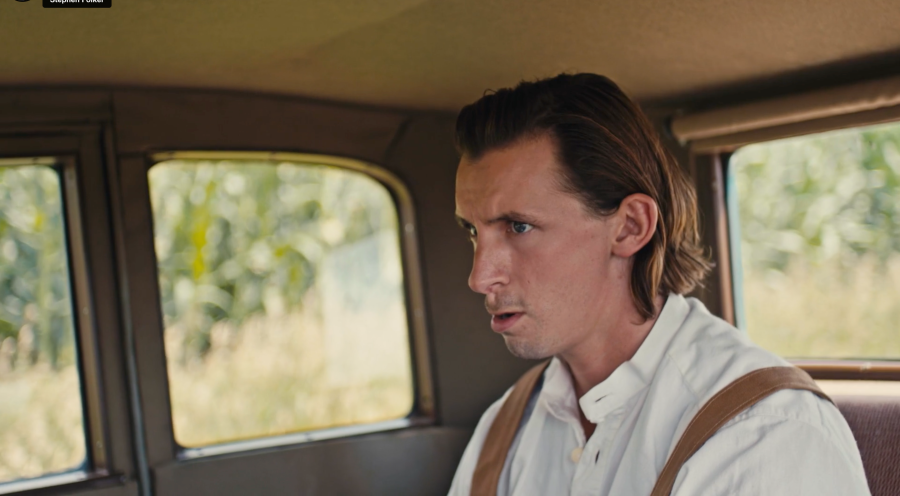
“One thing I tell everyone is, filmmaking is a craft. One that takes dedication and perseverance,” Folker said. “It’s being thick skinned and not worrying about what everyone has to say about your work. And talent isn’t based on what gear you have or the ‘right way’ to do things. It’s what you can do with what you have. Bob Ross made killer paintings with a paint brush you’d use on a door and buy at Home Depot.”
His son Levi is a talented, self-taught watercolor artist and he always says “When it comes to art, rules are meant to be broken,” Folker said. “He’s spot on.”
For more information on Folker’s website, visit his website HERE.
For the latest news, weather, sports, and streaming video, head to WHBF - OurQuadCities.com.

